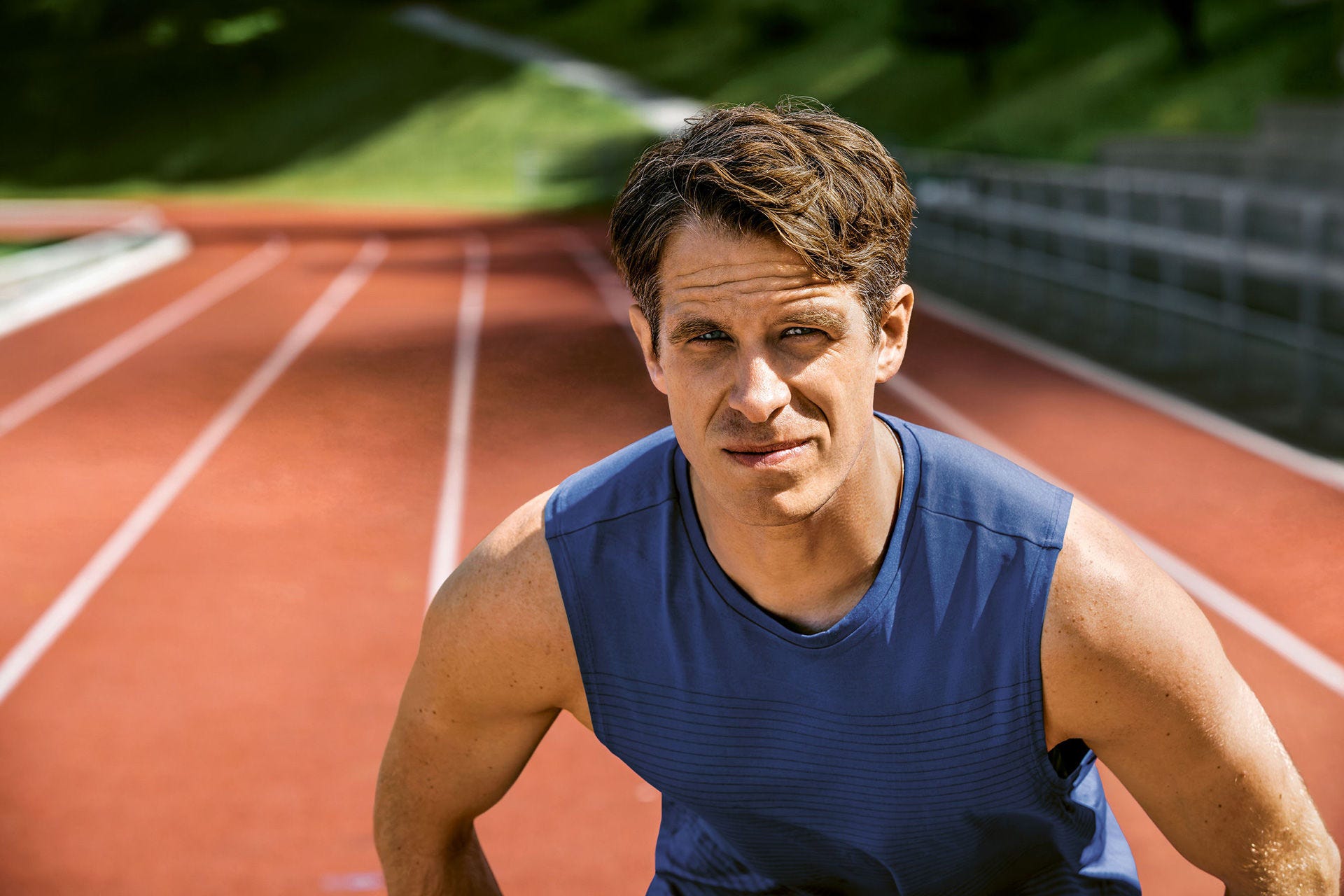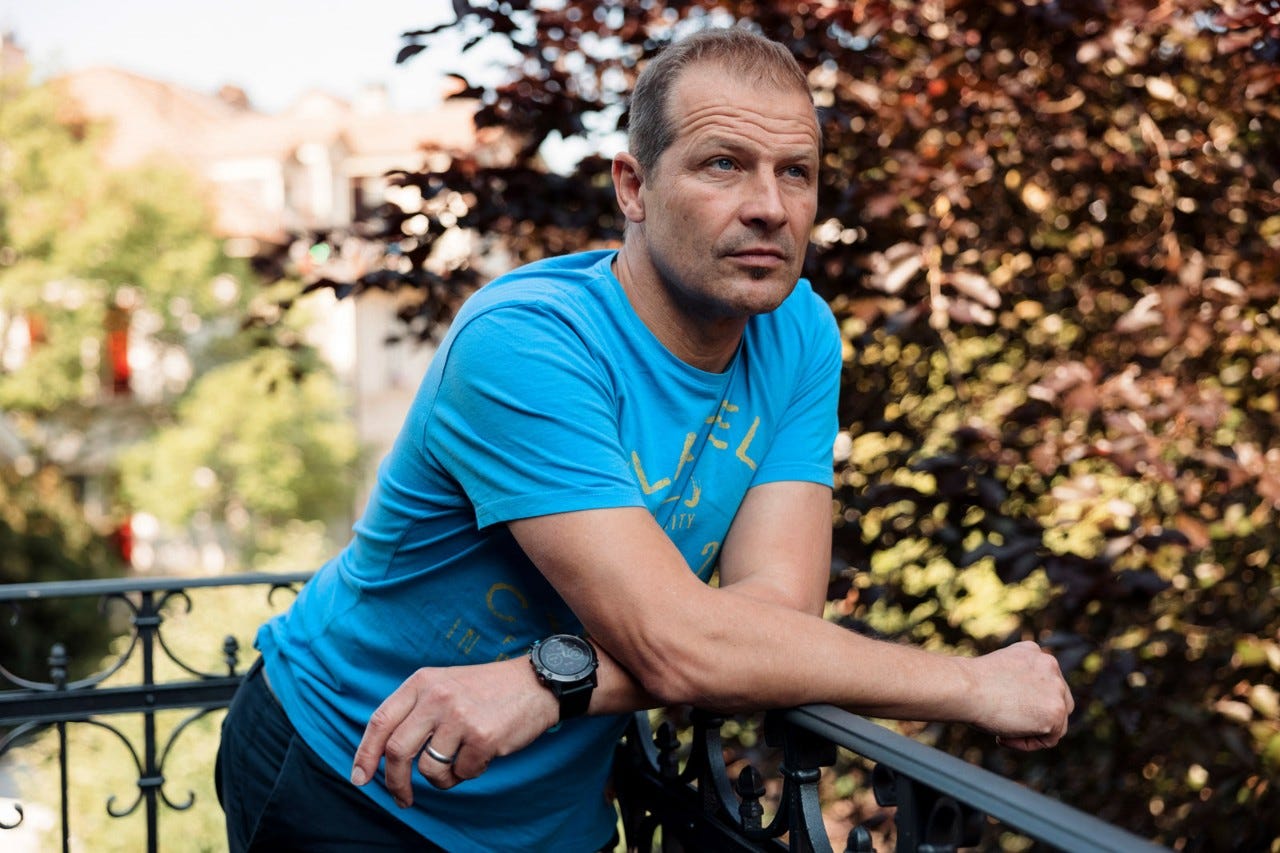Mental strength: improving performance through positive thinking
We train strength, technique and endurance. But what about our mind? How we think has a huge impact on our performance.

Sports psychologist Jörg Wetzel makes competitive athletes mentally strong. But his tips aren’t just for pros.
Are we born winners or losers?
No. Thirty years ago, it was thought that performance and mental strength were two-thirds innate genetic traits and just one-third developed and acquired. But today we believe it is the other way round, with two-thirds being learned. We can certainly control our psyche and work on our personality to become mentally stronger and more resilient.
How do sports people handle nervousness and pressure to perform?
Negative thoughts and self-doubt are always there in the back of the mind, but they tend to become stronger shortly before competitions. So you need to be prepared for this and use the “thought-stopping” technique, for example: Say “stop”, take a deep breath, and repeat one or two motivational thoughts in your mind. Athletes have to practise this mental programming as part of their training. The focus is also important: concentrating only on the result is not ideal – you also need to focus on the process itself. If you achieve your full potential in a competition, you can lose and yet still be happy with yourself.
“If you only want to be better than the others, you won’t experience joy or social cohesion.”
But sport is often about winning.
Of course, competitive athletes are characterized by the fact that they define themselves strongly in terms of performance. But that shouldn’t be all there is to it. Mental well-being provides an important foundation. “If you only want to be better than the others, you won’t experience joy or social cohesion.”
What can mental training achieve?
Jan Lochbihler, the current world record holder in shooting, came to me with motivation problems. He then developed the vision to shoot a world record. He achieved this goal just a few months later – thanks to his mental attitude. Presumably, other athletes in the competition were also on course to break the world record. But nerves got the better of them.
So we shouldn’t only focus on the goal?
The most important thing is not to think in the right moment. When you’re competing, you have to let your body, i.e. your subconscious, take the lead. If you were to ask a sports person straight after the competition why they won, they probably wouldn’t be able to give you an answer. Their performance was down to automatism, intuition or, as I said, their subconscious. Their head and powers of reasoning were finally able to take a break.
You harness the subconscious in your coaching. How does it work?
I worked with a track and field athlete who was unable to train properly for months before she competed at the Olympics due to injury. We calculated that she has already done thousands of jumps in her career – the body doesn’t forget that in a few weeks. It was all in her mind. We trained the ideal jump through visualisation, trance and relaxation. And it worked: she received an Olympic diploma. The athlete had to learn to trust her body.
“Self-doubt is a good thing; it shows you have a desire to develop further.”
How can we apply these methods in our daily lives?
We can learn to adopt a positive attitude. It is up to us whether we put a negative or positive spin on our thoughts. I recommend having an evening routine: Write down everything that you still have to do. And then put the list away until the next day. This will help clear your head of all your to-dos. Then write down what you did well during the day, what you are proud of, and what feeling you would like to get up with the next morning. Then go to bed with these positive thoughts in your mind.
It sounds so simple. But many people are plagued by self-doubt.
Self-doubt is a good thing; it shows you have a desire to develop further and want to do it better. But you shouldn’t let your self-doubt consume you. A multiple medallist at the Olympic Games once said that: as soon as he no longer took his thoughts – primarily self-doubt – seriously, he was able to deliver top performances more reliably.



